Resolution 68: The most important piece of Innovation 2.0
The Doi Moi process since 1986 has created an "institutional breakthrough" to lift Vietnam out of poverty, in which the most important change is the transition from a centrally planned subsidized economy to a multi-sector market economy with a socialist orientation.
Changing the nature of production relations liberates the productive forces, bringing huge acceleration to the economy. The more the role of the private sector is affirmed, the more the economy will have more momentum for growth.
During the period 1986-2022, Vietnam's average annual GDP growth rate reached 6.45%, significantly higher than the global average of 3.01%. In 2024, Vietnam's GDP growth rate reached 7.09%, raising the GDP scale to about 476 billion USD with an average income per capita of 4,700 USD/year. During this period, Vietnam's GDP increased 18 times (476.3 billion USD compared to 26.3 billion USD), while GDP/capita increased 11 times (4,700 USD/person compared to 436.4 USD/person).
However, the economic growth model based on intensive labor and resources over the past 40 years has not been enough to turn Vietnam into a high-income country, with the growth rate gradually decreasing over the 10-year periods and difficulty in achieving an average growth rate of 7%/year. This is also reflected in the weakness of the private economic sector compared to the FDI sector.
In their own country, private enterprises are discriminated against, leading to the fact that the more they open up, the more they lose. In the period 2010-2012, the proportion of exported goods by FDI enterprises and domestic enterprises was equal.
However, the export value of FDI enterprises is increasing rapidly and gradually accounts for more than two-thirds of Vietnam's export turnover. According to statistics in 2023, 72.52% of Vietnam's export turnover comes from foreign-invested enterprises. Vietnam is gradually becoming a "cheap processing" country and is not taking advantage of the benefits of technology transfer and development that FDI brings.
Panorama of Ho Chi Minh City (Photo: Nguyen Duc Trinh).
The current domestic movements show the image of Doi Moi 2.0. The country cannot rise from its starting point as a poor country. The Doi Moi over the past 40 years has created great foundations and momentum for the economy to have the basic conditions to take off.
Vietnam today, like China in 2010 (GDP/person reached 4,550 USD), Taiwan in 1986 (GDP/person reached 4,036 USD); South Korea in 1988 (GDP/person reached 4,748 USD)... The journey of "transforming into a dragon" of these countries is associated with revolutions in perception and action.
Vietnam has begun this journey starting from the first spearhead: institutional reform with the "streamlining - strength - efficiency - effectiveness - efficiency" revolution in the spirit of Resolution 18.
The second spearhead is to develop science and technology, innovation, and digital transformation in the spirit of Resolution 57 to transform the growth model, aiming to increase efficiency and innovation content.
The first revolution is about institutions; the second revolution is about technology and innovation; the third revolution is the subject of innovation, the force contributing to the successes of the first Innovation and Innovation 2.0.
In addition, there will be other pieces focusing on breakthroughs in infrastructure development, human resources, industrial policies, and bottlenecks that have existed for many years. Among these spearheads, Resolution 68 of the Politburo on private economic development is the most important piece to realize the double-digit growth target for the 2026-2030 period and the hundred-year goal of becoming a high-income country by 2045. This is the Resolution that brings the private economy, enterprises, and private entrepreneurs back to their rightful place.
The double-digit growth target will not be achieved without a breakthrough in the private economic sector. With its dynamism, flexibility and high adaptability, the private sector has been making a major contribution to GDP, state budget capital, job creation, innovation promotion and labor productivity improvement. Therefore, this will be the most important driving force for Vietnam's growth in the coming period.
Contribution rate to GDP of domestic private sector (Source: General Statistics Office).
According to the General Statistics Office, the private sector contributes nearly 60% of GDP and has been on a steady increase for 20 years with fixed asset value growing continuously at a CAGR of 8% in the 2018-2022 period, along with outstandingly high investment efficiency - 1.2 times higher than the average of the whole economy and 1.9 times higher than the state sector.
Meanwhile, the contribution ratio of the state economic sector tends to decrease; although the FDI sector has grown and contributed positively to the domestic economy, its contribution ratio has reached its limit and will only maintain at 22% during the 2019-2023 period.
In the past and present, the FDI sector has been and is an important driving force, a "big push" for economic growth. However, the activities of FDI enterprises in Vietnam are currently focused on the processing and assembly stages, bringing low added value.
In addition, this sector has relatively low fixed asset and long-term investment values, reflecting the fact that FDI enterprises are prioritizing the exploitation of cheap labor rather than expanding and developing long-term business operations in Vietnam. Therefore, with the target of double-digit growth, Vietnam needs to increase its internal strength.
Unleash entrepreneurs and businesses
In the context of the Party and Government introducing many policies to develop the private sector, private enterprises and the great contribution of the private economic sector to the economy, the more reforms go backwards, the less confidence of entrepreneurs and enterprises is lost.
In 2023, private investment increased by 2.3%, an unprecedented low in history. In 2024, it reached 8.7%, still lower than the average of 14-15%/year. Surveys on business confidence by the Private Economic Development Research Board (Board IV) have shown that in addition to orders, the risk of criminalizing economic relations and complying with administrative procedures are still the main difficulties for businesses.
Thus, in addition to having to compete fiercely in a volatile market, businesses also have to face difficulties from the domestic business environment. In an environment of many risks and uncertainties, many businesses have changed their ownership form to become foreign enterprises or "did not dare to grow" to protect their assets.
This creates an unusual business structure in Vietnam. In 2022, 93.5% of domestic private enterprises were micro and small; large enterprises accounted for 1.3%. Notably, medium-sized enterprises accounted for only 3.8%, creating a bottleneck in development because only these enterprises can begin to participate in global value chains.
After 40 years, very few small businesses have become medium-sized enterprises and very few medium-sized enterprises have developed into large enterprises. Without a breakthrough change in thinking and implementation, in which the key position of the private sector in the economy is established, entrepreneurs and businesses will lack confidence and motivation to grow. The short-term, opportunistic thinking of many private businesses also comes from a lack of strategic confidence.
The 1986 renovation period opened the first door for the development of the private economy, with innovative economic thinking, shifting from a centralized planning management mechanism to a socialist-oriented market economy.
The Law on Companies, the Law on Enterprises, the Law on Investment, etc. and other Party documents were born, gradually acknowledging the inevitable existence of the private economic sector in the goal of national economic development. Resolution 10 of 2017 created a turning point in thinking when it officially recognized the private economy as "an important driving force of the socialist-oriented market economy".
Typical modern buildings in Hanoi (Photo: Le Hoang Vu).
This guiding view on the status of the private economy has resonated in the community. However, this is not enough to free private enterprises from the unfair treatment due to the mechanism of asking and giving that still exists in legal regulations.
The birth of Resolution 68 repositions the national development compass, bringing entrepreneurs and private enterprises back to their rightful position and role in the economy; establishing the right to freedom of business, removing all barriers in perception and access to resources.
The breakthrough in the spirit of Resolution 68 focuses on establishing "rules of the game" rather than "players", not on giving priority to private enterprises but on creating a level playing field for private enterprises to do their jobs well. The Resolution sets the goal of ensuring ownership rights, freedom of business, property rights, equal competition rights and ensuring contract enforcement of the private economy.
A special point in Resolution 68 has freed private enterprises from the fear of safety when emphasizing the spirit of non-criminalization and non-retroactivity, maximally protecting the interests of entrepreneurs and enterprises. Recent protracted cases have created a cautious mentality and reduced the business motivation of the business community - the pioneers on the economic front.
The birth of Resolution 68 thoroughly grasps the spirit of clearly distinguishing between administrative, civil and criminal responsibilities; between personal and legal responsibilities. In handling violations, proactive remedial measures must be given priority; retroactivity must be strictly prohibited and the principle of presumption of innocence must be upheld during the handling process.
When starting a business, entrepreneurs are like drivers with their cars. They want to go far, go fast, but most importantly, they want to be safe. Drivers are not afraid of potholes because they can slow down. They are afraid of driving on a road that is allowed today but tomorrow they will receive a "cold fine".
What entrepreneurs and businesses need is a clear commitment, a transparent and consistent policy to confidently move forward. Resolution 68 is a strong declaration for the freedom of business, and a legal shield containing the belief for private businesses to "dare to do, dare to take responsibility, dare to succeed". From suffering from many prejudices, with Resolution 68, entrepreneurs have become soldiers on the economic front.
Thinking of growing a strong and global business
The key to the success of many East Asian countries has been building export-oriented economies with globally competitive businesses.
With such thinking, the resolution affirms that the private economy is the most important driving force of the national economy, the pioneering force promoting growth, creating jobs, improving labor productivity, national competitiveness, industrialization, modernization, and restructuring the economy towards green, circular, and sustainable direction.
Along with the state economy and collective economy, the private economy plays a core role in building an independent, autonomous, self-reliant and self-reliant economy associated with deep, substantive and effective international integration, helping the country escape the risk of falling behind and rise up to prosperous development.
If we count the entire text of the Resolution, we will see that the term "enterprise" is mentioned most often (142 times), followed by "development" (59 times), which partly shows the spirit of taking enterprise as the center and development as the main goal.
The resolution emphasizes the idea of developing enterprises in association with the process of national construction and development. The policy system is designed for different types of enterprises with different problems: Large enterprises, leading enterprises can participate in major national problems; medium and pioneer enterprises are supported to expand globally; small and micro enterprises are supported to solve difficulties in land and credit.
In addition, business households are included in the policy framework, to support in parallel with promotion must be as big as "pressure", thereby promoting the national entrepreneurial spirit.
Fireworks shine brightly on the Saigon River (Photo: Do Minh Quan).
The goal of 2 million enterprises by 2030 is built on the motivation to transform into enterprises of more than 5 million business households today. In addition, there are policies aimed at entrepreneurs by affirming their position and role; ensuring legitimate needs such as property rights, safety, respect and honor. Policies aimed at society are also clear through promoting the spirit of entrepreneurship, business and respect for entrepreneurs nationwide.
The 1986 renovation with the goal of lifting the country and its people out of poverty required a major change, a major turning point in development thinking. The current stage, with the goal of bringing the country into the most advanced countries, "rich people - strong country" requires even more drastic changes in thinking and action to create space to promote national strength.
Resolution 68, with its comprehensive approach, has created enormous impacts on businesses, entrepreneurs and the entrepreneurial spirit of society. With its "unleashing" mindset, it links short-term issues to long-term development thinking.
The Resolution has brought new vitality and fostered confidence in businesses and private entrepreneurs so that they can feel secure and confident in production and business, contributing to the goal of building a strong socialist Vietnam.
The remaining and important issue now is implementation - How to put the ideas of the resolution into practice, creating momentum for businesses and private entrepreneurs to contribute to the double-digit growth target and the nation's rising era.
Source: https://dantri.com.vn/kinh-doanh/nghi-quyet-68-ban-tuyen-ngon-tu-do-cho-doanh-nhan-20250516120855149.htm


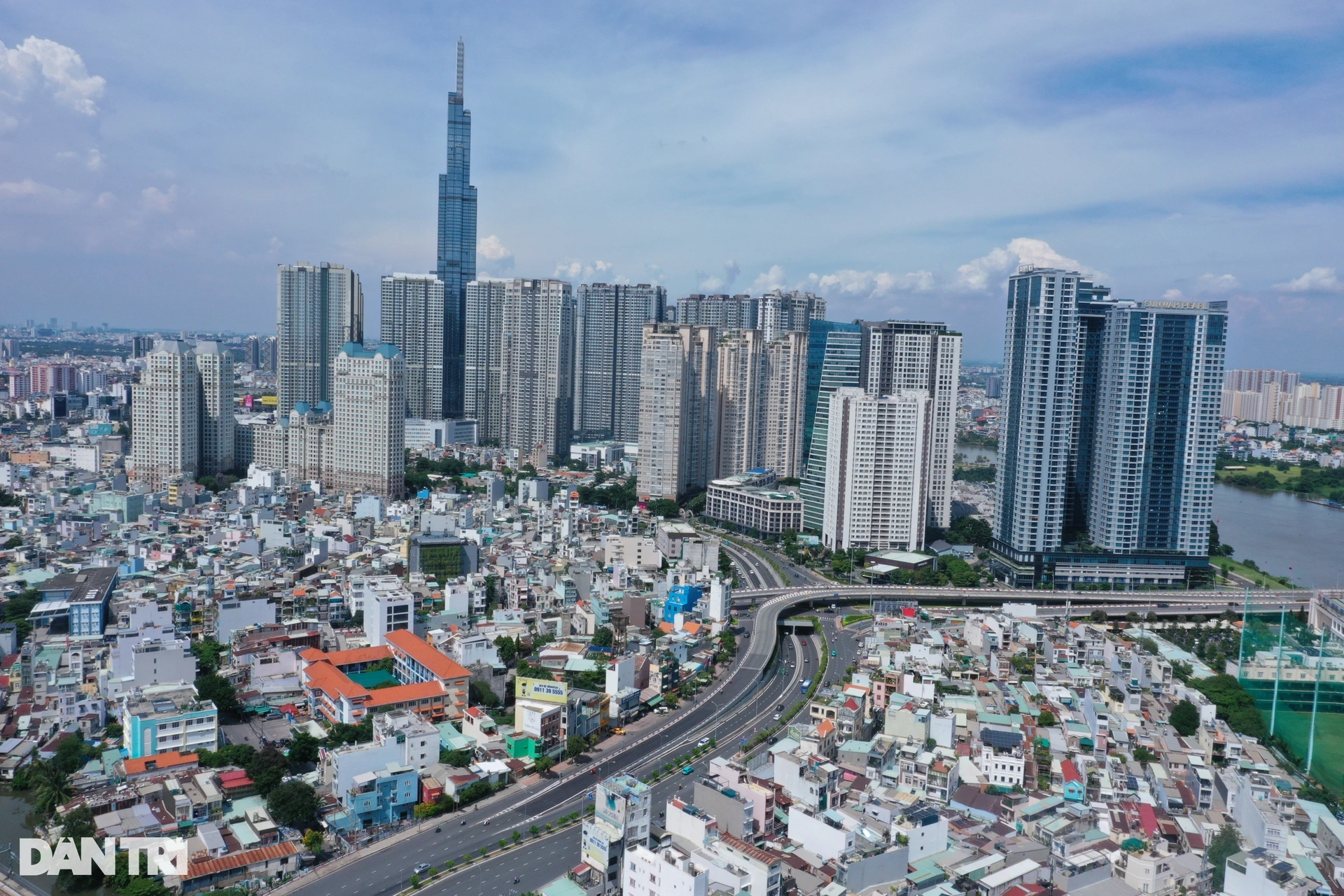
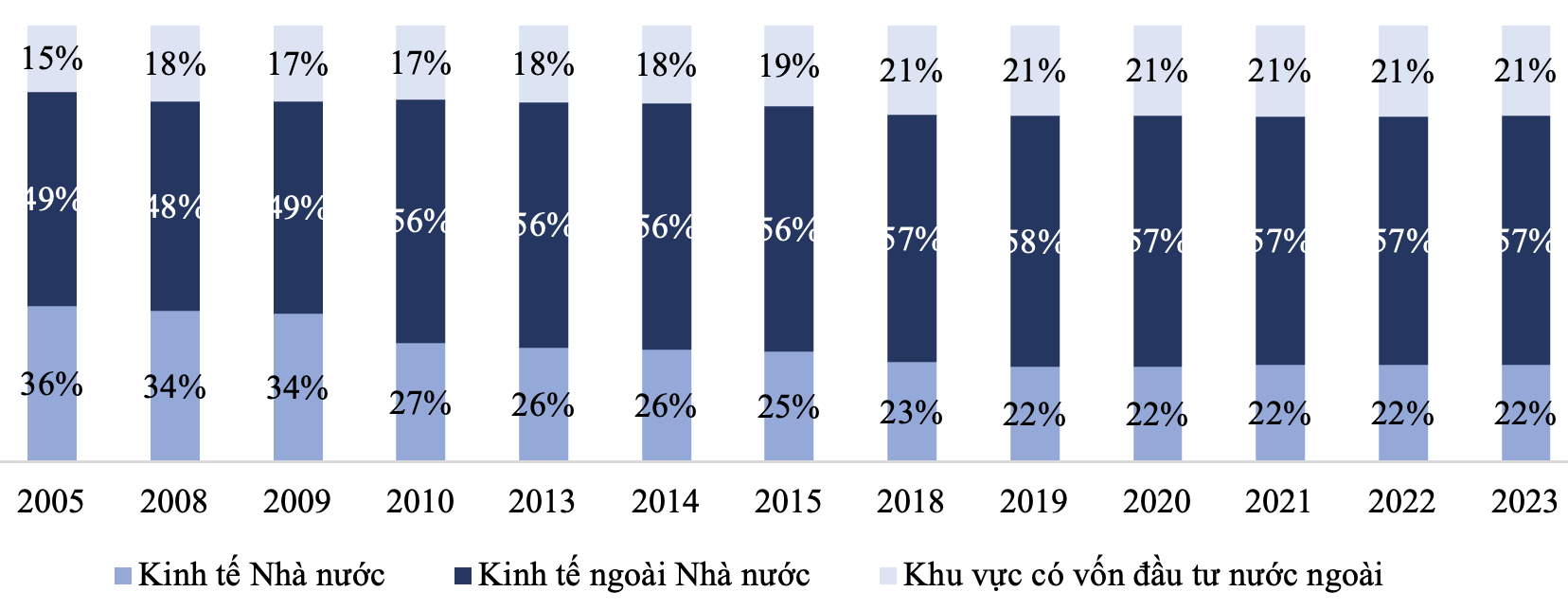
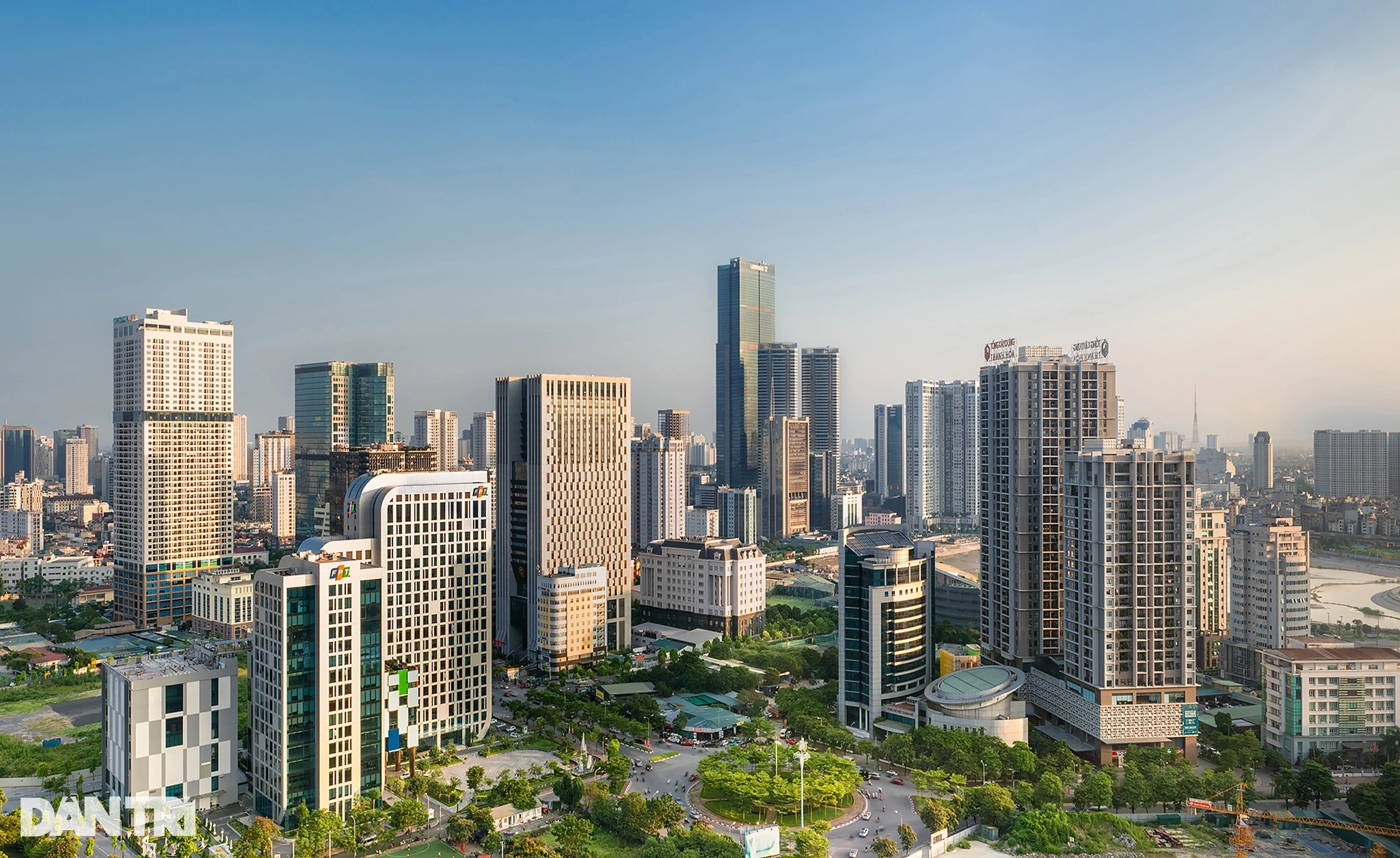


![[Photo] Prime Minister Pham Minh Chinh meets with Speaker of the Hungarian National Assembly Kover Laszlo](https://vphoto.vietnam.vn/thumb/1200x675/vietnam/resource/IMAGE/2025/10/20/1760970413415_dsc-8111-jpg.webp)

![[Photo] Prime Minister Pham Minh Chinh received Mr. Yamamoto Ichita, Governor of Gunma Province (Japan)](https://vphoto.vietnam.vn/thumb/1200x675/vietnam/resource/IMAGE/2025/10/21/1761032833411_dsc-8867-jpg.webp)

![[Photo] Da Nang residents "hunt for photos" of big waves at the mouth of the Han River](https://vphoto.vietnam.vn/thumb/1200x675/vietnam/resource/IMAGE/2025/10/21/1761043632309_ndo_br_11-jpg.webp)




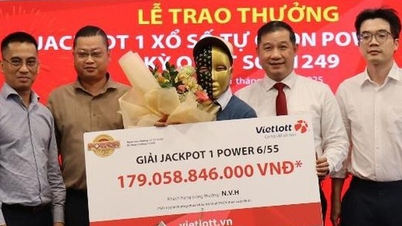

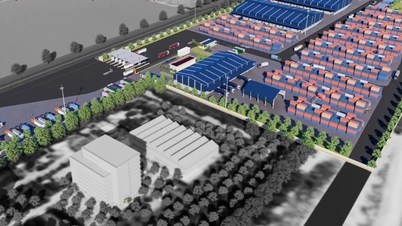
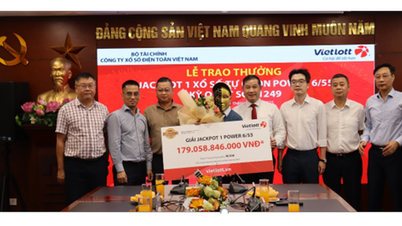















































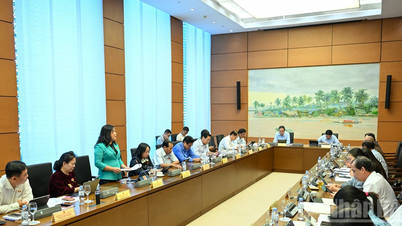
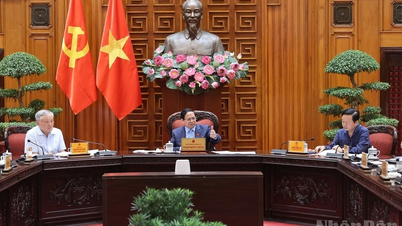
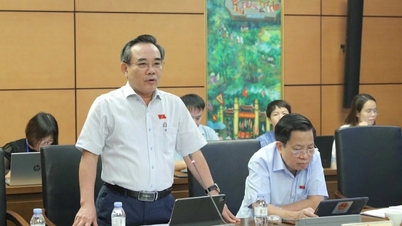
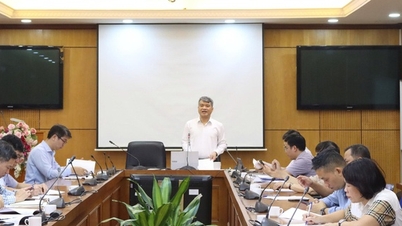
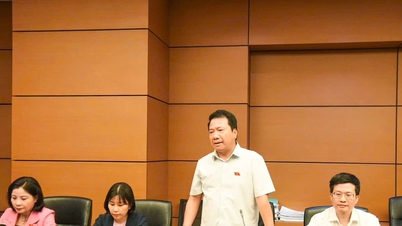

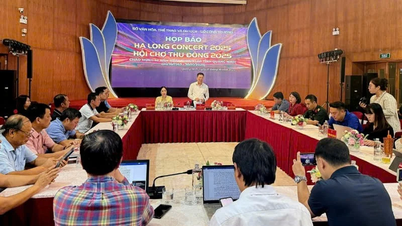



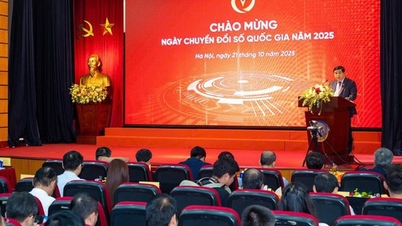






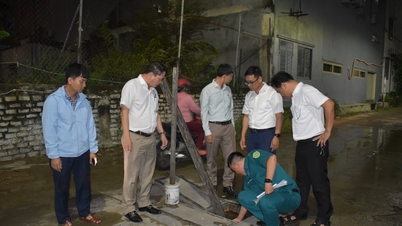

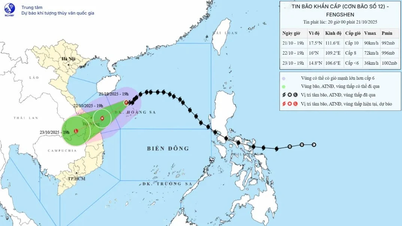

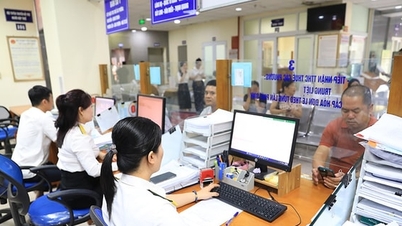



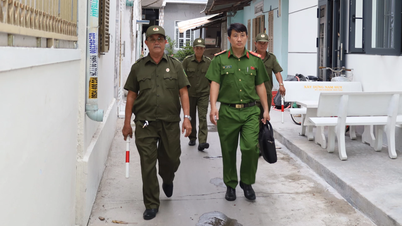














Comment (0)